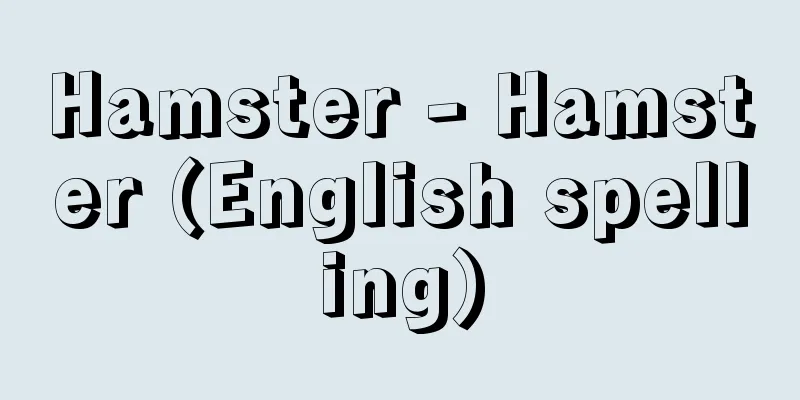Born October 31, 1903 in Camberley, Surrey
[Died] August 5, 1983. British economist in Cambridge. Graduated from Cambridge University in 1925. Obtained a master's degree in 1927, became a lecturer at the same university in 1931, and became a professor of economics in 1965. Retired in 1971. Initially a follower of Marshallian theory, he was influenced by P. Sraffa and wrote The Economics of Imperfect Competition (1933) in an attempt to overcome the dualistic division between perfect competition and perfect monopoly. He also formed a research group called the Circus with RF Kahn, N. Kaldor, and others, and contributed to the writing of Keynes's General Theory. At the same time, influenced by Marx's Das Kapital, he wrote The Accumulation of Capital (56). From this time onwards, he engaged in the Cambridge debates with PA Samuelson and RM Solow, who were advocates of the Neoclassical Synthesis and Neoclassical Growth Theory, and while sharply criticising them, he presented a so-called post-Keynesian position in Economic Heresies (71) and An Introduction to Modern Economics (73), co-authored with J. Eatwell. He also published many other books and articles, including The Rate of Interest and Other Essays (52) and Economic Philosophy (62). Robinson
Robinson, Peter David Born 29 December 1948 in Belfast. British politician. First Minister of Northern Ireland (in office since 2008). After studying at Metropolitan College in Belfast, he worked in real estate. He then helped found the Democratic Unionist Party (DUP) and became its general secretary in 1975. He was elected to the House of Commons in 1979. He resigned in protest of the 1985 Hillsborough Agreement, but returned to Parliament in the 1986 election. He was critical of the Good Friday Agreement, the 1998 comprehensive peace agreement, but was appointed Minister for Regional Development when the new Northern Ireland Assembly was formed. In 2006, he led the negotiations in St Andrews, Scotland, to restore self-government in Northern Ireland, with DUP leader Ian Paisley as First Minister and Sinn Féin's Martin McGuinness as Deputy First Minister, and the stage was set for the full restoration of the Northern Ireland government and the Northern Ireland Assembly. Following Paisley's resignation, he became leader of the DUP in May 2008 and was nominated as Prime Minister. In 2010, he temporarily left the position due to a scandal involving his wife. He lost his seat in the British elections held in June 2010. Robinson
Robinson, John Arthur Thomas Born: June 15, 1919, Canterbury
Died: December 5, 1983. Bishop of Yorkshire and theologian. Educated at Marlborough College, Cambridge University, and other institutions, he served as Bishop of Woolwich from 1959 to 1969. His book Honest to God (1963), which was published at that time, was an ambitious work that directly addressed the disconnect between traditional church doctrine and modern consciousness, and caused a great stir worldwide. The debate surrounding it was summarized in "The Honest to God Debate" (63). Since 1969, he has been Dean of the Church of Trinity College, Cambridge, and Lecturer in New Testament Studies at the Faculty of Theology at the same university. In "Redating the New Testament" (76), he raised new topics by dating the New Testament documents much earlier than the conventional wisdom. He visited Japan in 1978. In addition to the above, his major works include "In the End God" (50), "On Being the Church in the World" (60), and "Can We Trust the New Testament?" (77). Robinson
Robinson, Edwin Arlington Born: December 22, 1869, Headtide, Maine
[Died] April 6, 1935. New York. American poet. Descendant of the 17th century female poet A. Bradstreet. After dropping out of Harvard University, he moved to New York and began writing poetry, but was not recognized and led an unstable life. He gained recognition with his philosophical poem The Man Against the Sky (1916), and established his fame with Collected Poems (21, Pulitzer Prize). Around this time, he published narrative poems based on the Arthurian legend, and gained widespread fame with the third part of the series, Tristram (28, Pulitzer Prize), which followed Merlin (17) and Lancelot (20). He subsequently published many narrative poems, including Cavender's House (29), Talifer (33), and King Jasper (35). He was a poet who had a dark view of fate but also believed in human dignity. Robinson
Robinson, Sir Robert Born: September 13, 1886, Ruffield, Derbyshire
[Died] February 9, 1975, Buckinghamshire British organic chemist. Educated at the University of Manchester, he was professor at Sydney (1912-15), Liverpool (15), St. Andrews (21), Manchester (22), University College London (28-30), and Oxford (30-55). Known for his research on the molecular structure of plant pigments, particularly alkaloids, he succeeded in synthesizing a specific drug for malaria. He also made important contributions to the development of penicillin and contributed to the development of organic electronic theory. He was awarded the Nobel Prize in Chemistry in 1947 and knighted in 1949. He visited Japan in 1953. Robinson
Robinson, Lenox Born: October 4, 1886, Douglas
[Died] October 14, 1958. Irish playwright from Dublin. Director of the Abbey Theatre (1910-14, 1919-23). He also served as secretary to George Bernard Shaw, and his works are characterized by their sharp satire. He made his debut with The Clancy Name (1908), and published The White Headed Boy (1916) and The Lost Leader (1918), among others. He also wrote a book titled Ireland's Abbey Theatre (1951). (→Irish Theatre) Robinson
Robinson, Henry Crabb Born 13 March 1775 in Bury St Edmunds
[Died] February 5, 1867, London. British journalist and diarist. Studied law, studied abroad in Germany, and served as a foreign correspondent for The Times and a barrister. His skillful conversation skills and affable personality made him a favorite in high society, and he had many acquaintances. He left behind the famous "Diary, Reminiscences and Correspondence of H. C. Robinson" (1869), which is extremely important as a source of information on the social situation and events of the time, as well as the news of writers such as Wordsworth, Coleridge, and Lamb. Robinson
Robinson, Jackie Born January 31, 1919 in Cairo, Georgia
[Died] October 24, 1972. Stamford, Connecticut. American professional baseball player. Real name Jack Roosevelt Robinson. The first black player in the major leagues, he played as an infielder for the Brooklyn Dodgers from 1947 to 1956. His joining the team marked the beginning of black players entering not only baseball, but also basketball, American football and other professional sports. He had a lifetime batting average of .311. In 1962, he became the first black player to be inducted into the Baseball Hall of Fame. Robinson
Robinson, Edward G. Born: December 12, 1893 in Bucharest
[Died] January 6, 1973.
American film actor. Real name Emanuel Goldenberg. Famous as a gangster actor and character actor active in the 1930s and 1940s. Major works include "Rico" (1930) and "The Great Dr. Erich" (1940). Robinson
Robinson, Henry Peach [Born] 1830
[Died] 1901
British photographer. He first studied painting, but later became a representative figure in artistic photography with his allegorical photographs using the composite print technique. His main work is Pictorial Effect in Photography (1869). Source: Encyclopaedia Britannica Concise Encyclopedia About Encyclopaedia Britannica Concise Encyclopedia Information |










